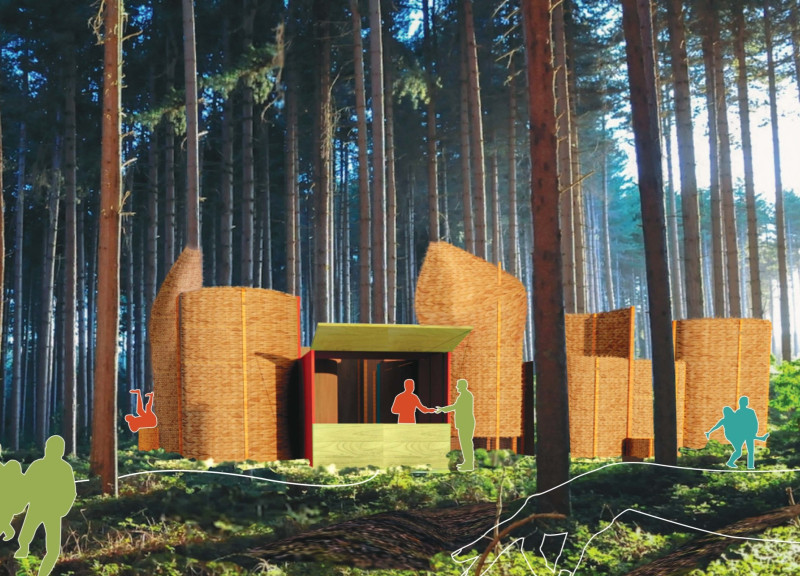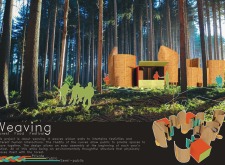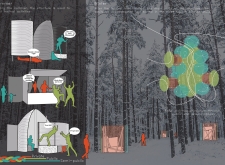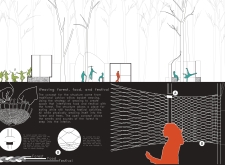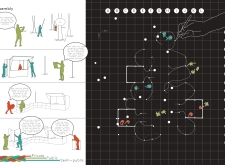5 key facts about this project
Weaving Forest Food Festival is a design focused on fostering community interaction within a forest setting. The concept draws inspiration from Latvian wicker weaving, aiming to create a space that blends festival activities with the surrounding nature. The main function of the structure is to serve as a gathering place for visitors, allowing them to enjoy various festivities while emphasizing ecological responsibility in its approach.
Weaving Concept
The design features walls made of interwoven wicker, creating a lively interplay between public and private areas. The gentle curves of the structure promote a natural flow, encouraging people to interact with one another. This setup enhances the connection to the forest, as it allows guests to experience the environment through sight, sound, and smell while they participate in festival activities.
Materials and Assembly
Wicker is the primary material chosen for the construction, reflecting the weaving theme and supporting an environmentally conscious approach. As a natural and renewable resource, wicker provides both beauty and strength to the design. Rubber gaskets are used to secure the wicker to poles, ensuring stability and durability during the festival.
Seasonal Functionality
This design accommodates seasonal changes, acting as a lively center during the summer months. Once the festival ends, the structure can be easily taken apart, allowing for efficient storage and reducing waste. This practicality indicates careful thought about the lifecycle of the resources used in building the project.
User Experience and Comfort
Functionality is key in the arrangement of food stalls and seating areas. Cargo boxes serve as the base for the kitchen stalls, which feature details like food pickup windows and counters to effectively support festival needs. Hay bales are placed to offer comfortable seating, encouraging guests to sit back and enjoy their time at the event.
The overall design, with its focus on natural materials and inviting layout, fosters a welcoming environment. It allows visitors to connect with both the festival atmosphere and the forest itself, enhancing their experience in a meaningful way.


